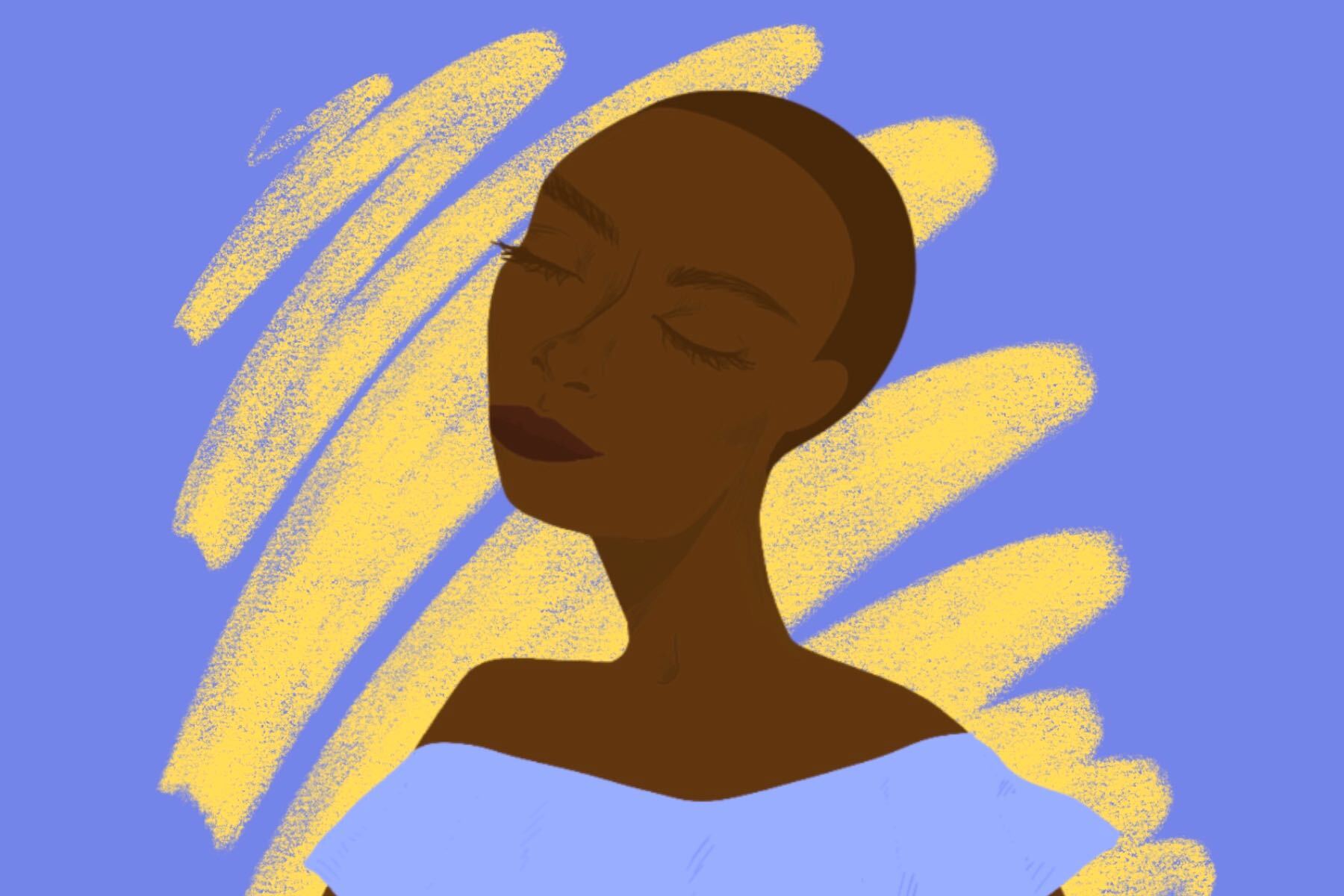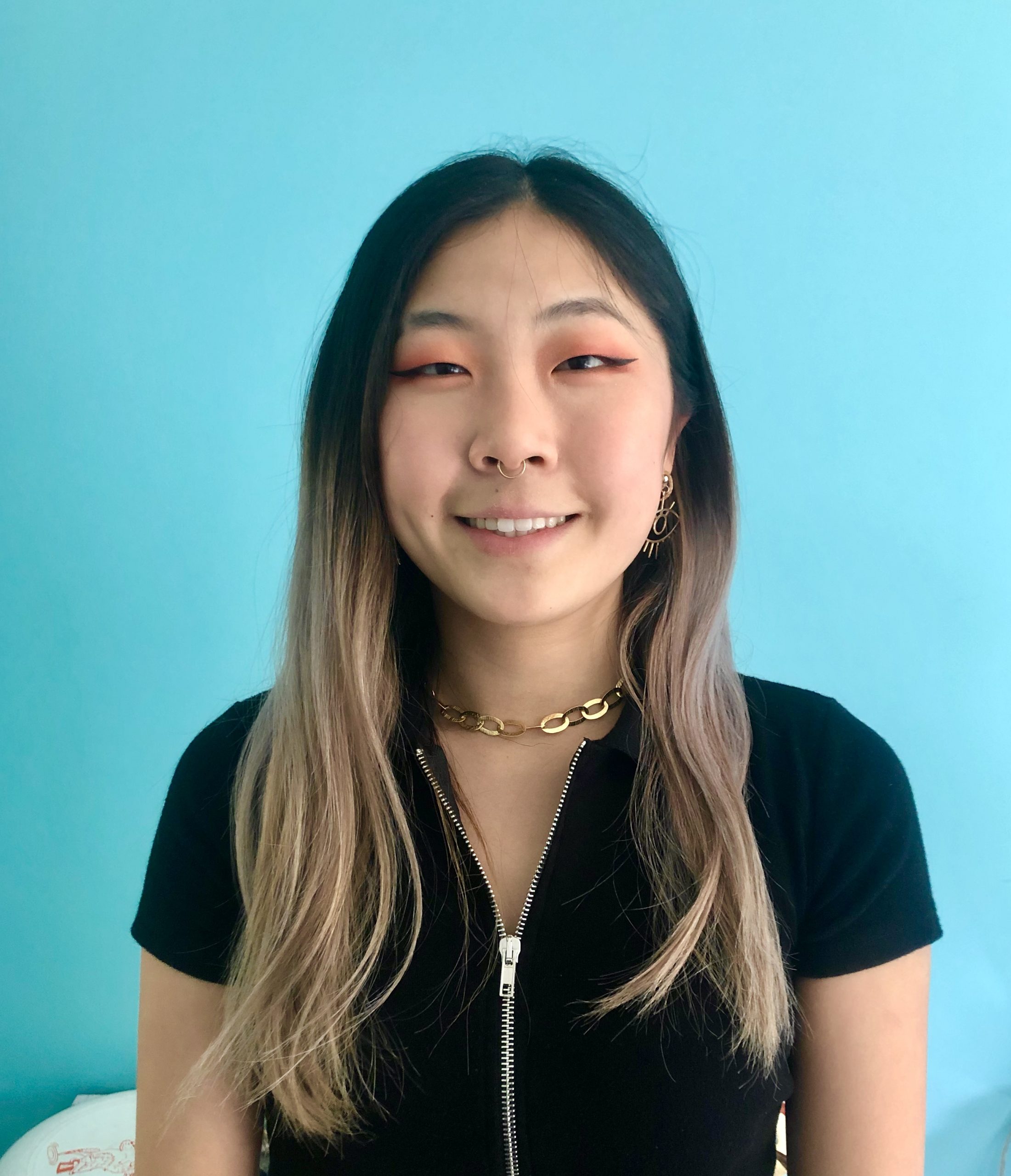Since quarantine started and hair salons were forced to close, people have attempted to cut, dye and restyle their hair at home. A decent amount of people, and a surprising number of them women, are taking this opportunity to go bald. Shaving my head has been on my bucket list since high school, but every time I’ve felt the impulse to finally do it, I have chickened out at the last minute. As the weather warms up and I become more and more stir-crazy at home during this quarantine, I am very tempted to grab a razor and just go for it.
Women shaving their heads isn’t something new; in the early 2000s, actresses like Natalie Portman and Charlize Theron were applauded for their commitment after going bald for their movie roles. In recent years, the trend shifted out of Hollywood and into social media platforms as an edgy fashion statement. Since Millie Bobby Brown sported a buzz cut playing Eleven in the Netflix series “Stranger Things,” going bald has become a more and more popular aesthetic choice.
Earlier this year, musician JPEGMAFIA dropped his single “BALD!” followed by the tweet: “MY NEW MUSIC WILL TARGET THE BALD DEMOGRAPHIC.” Though he was mainly addressing men who suffer from hair loss, his call for bald representation reflects the culture shift towards shorter hair on both men and women. Kicki Yang Zhang (@kickiyangzhang), Heather Moorhouse (@makeupmouse), Mei Peng (@meicrosoft) and Evan Mock (@evanmock) are just a few of the YouTubers and influencers who are rocking the full bald or colored buzz cut look in 2020.
Going bald is a bold statement, and if you decide to take a razor to your locks, you will undoubtedly receive judgment, side-eyes and even outright disapproval from people around you. But if you want to check “going bald” off your bucket list, or are tired of long hair, or simply want to try something new, quarantine is the time to do it.
Worst comes to worst, you go back to school in the fall with pixie-length hair, which is a look in itself. As I search for reasons to convince myself and the people around me that I should shave my head, I’ve found that our culture’s relationship to hair might be more complicated than it seems.
Long hair has always been the standard for traditional beauty. Whether it’s curled or straightened, long hair is undeniably attractive. But at what cost? It takes so much effort to maintain and constantly gets in the way. Women are expected to wake up half an hour early just to do their hair, and dump money on all types of products to keep it healthy. It’s a beauty standard that burdens women more than it benefits them.
It’s strange to think that hair length, a pretty arbitrary measurement, is used to measure a person’s masculinity or femininity. Outside of facial and bodily features, we’ve been taught that guys have short hair and girls have long hair. I’ve always been jealous of how convenient men’s hairstyles are. They don’t have to worry about driving with the windows open, or getting hair in their lip gloss or food. But what exactly does hair have to do with gender? It seems to me, since short hair is obviously more practical, it’s been declared the standard for men, but not women. Instead, society makes women spend copious amounts of their energy into keeping up their performance of femininity.
Rose McGowan explores the idea of long hair as the foundational element of presenting traditionally feminine in her memoir, “BRAVE.” She explains that a woman’s success in Hollywood correlates directly with “appearance,” which is just a euphemism for sex appeal; part of this sex appeal is having long hair.
McGowan said that she “had to have long hair otherwise the men doing the hiring in Hollywood wouldn’t want to f— [her] and if they didn’t want to f— [her], they wouldn’t hire [her].” As one of the most outspoken figures of the #MeToo movement, she criticized the “Hollywood machine” and its misogynistic perpetuation of the motto “sex sells,” specifically in the objectification of female Hollywood stars.
McGowan shaved her head in 2015 as a way to “break up“ with the unrealistic standard of beauty that made her feel like a “blow-up sex doll, the kind with the hole for the mouth.” She didn’t want to be forced to fit into a preconceived and objectifying mold of female beauty. She no longer wanted Hollywood to use her as a propaganda tool to set beauty standards for women.
We, as individuals, are on the receiving end of the propaganda McGowan is talking about. Media feeds us the idea that long hair is an indicator of beauty. Recognizing sexism in Hollywood and rejecting it, like McGowan did, is a first step to challenging these oppressive beauty standards. “I meet so many women and girls that tell me their hair is a security blanket and what they hide behind. I found both not only relatable, but also heartbreaking,” said McGowan. “Of course you should have long hair if YOU feel like having long hair, but examine your motives. What part does society play in telling you how you should look? What part does media play in showing you what you should be?”
While playing with the possibility of going bald this summer, I’ve started to question what exactly my hair means to me, and who I’m doing my hair for. In quarantine, I’ve continued to do my makeup in the morning even when I’m not seeing anyone, but I’ve neglected my hair, opting to tie it back with a more-practical-than-pretty headscarf. While on my college campus, I only wore my hair down around people and as soon as I was alone or studying in the library, I’d immediately pull my hair up into a bun to keep it out of my face. Straightening my hair every morning felt more like a chore than a form of self-expression.
As the pandemic shows us how easily the world can end, I’ve decided to put my comfort above anyone else’s opinion. Right now, my hair is long and dyed brown, and the pandemic has prevented me from getting a touch-up at the salon. But even when quarantine is over, I don’t think I will invest so much time, energy and money into my hair.
Quarantine has made me realize how little I actually identify with my hair and how much of a burden I find it when I’m alone. Whereas my makeup and fashion choices are elements of my appearance I feel like I have control over, my hair seems more like a mandatory proof of femininity to an outside viewer. In self-isolation, I’m discovering what facades I’ve been putting up for my appearance, for other people.
Beyond this feminist, gendered argument for going bald, I’ve found many practical benefits of going bald as well.
First and foremost, you will save time; no more waking up to do your hair in the morning. Every day is a good hair day because there’s none to worry about. Showering will take less time, less water, and waiting for your non-existent hair to dry will take seconds. Maintaining a bald head is also pretty simple: Depending on how long someone is comfortable with it growing out, most people retouch their cut every one to two weeks.
Along with saving time, you also save money. Think about the number of products people invest in to keep up their hair care: from the straighteners to shampoo and conditioner, to monthly trims and maintenance of color if your hair is dyed like mine. Fashion and beauty companies make millions of dollars a year benefiting from selling women products that claim to fix their hair and beauty problems. By going bald, you are opting out of a capitalist system that uses stereotypical ideas of femininity to promote consumption.
The fear of judgement is one of the things that is stopping me and many other women from going bald. I’m afraid people are going to think that I am less attractive and less feminine if I go bald, but placing so much emphasis on hair as symbols of femininity and beauty is pretty absurd. Hair is temporary; it will grow back. Cutting your hair shouldn’t affect how beautiful or feminine you are, yet this myth has been fed to women for ages.
A few of my friends who have gone bald have given some advice about facing those fears: those who judge you or treat you differently after you decide to change your outside appearance aren’t worth keeping around.
For many women, shaving their head is an empowering experience that pushes them to rethink their relationship to their hair and their femininity. They find confidence in themselves outside of their appearance. Shaving your head temporarily changes your external appearance, but the change that really matters is between you and your self-image.

















